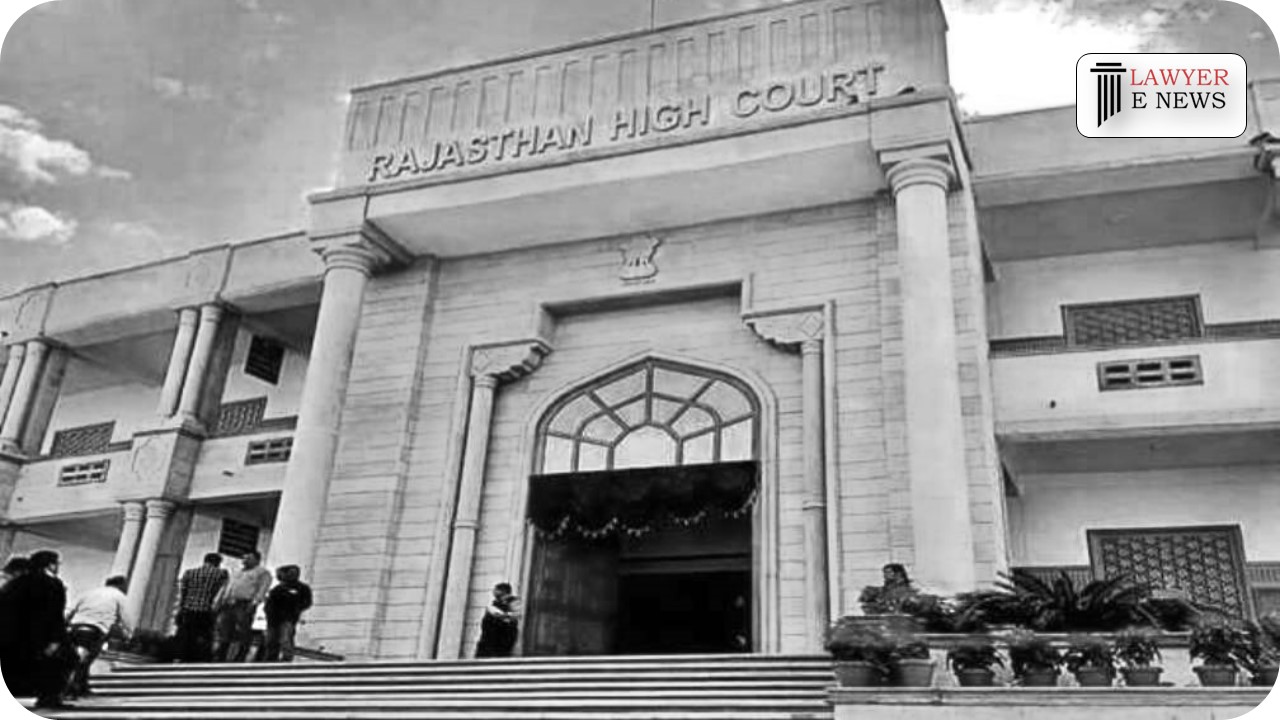-
by Admin
15 February 2026 2:36 AM



Rajasthan High Court sets aside Section 302 IPC conviction, upholds convictions under Sections 147, 323, and 325/149 IPC with probation benefits.
The Rajasthan High Court has partially allowed an appeal in a 1987 beating case, quashing the conviction under Section 302/149 IPC while maintaining convictions under lesser charges. The Division Bench, comprising Justice Pushpendra Singh Bhati and Justice Rajendra Prakash Soni, emphasized inconsistencies in witness testimonies and the lack of evidence linking the surviving appellants to the murder of the deceased, Raju Ram.
Facts of the Case:The incident occurred on October 2, 1987, when ten accused, armed with lathis and hockey sticks, allegedly attacked Madan Lal and others near Teliyon Ki Masjid in Kuchaman City. Raju Ram, who intervened, sustained fatal head injuries. The trial court convicted the appellants under Sections 302/149, 325/149, 323, and 147 IPC, sentencing them to life imprisonment for murder and granting probation for the lesser charges. Three appellants passed away during the pendency of the appeal, leading to the abatement of their cases.
Witness Testimonies:The court noted that 10 out of 22 prosecution witnesses, including the injured eyewitness Madan Lal, turned hostile. Madan Lal testified that he lost consciousness during the fight and could not identify his assailants, weakening the prosecution's case. The court observed, "The subsequent retraction by these witnesses does not diminish the probative value of their earlier testimonies but introduces significant doubt in this context."
Contradictions and Evidence:The court highlighted material contradictions in witness testimonies regarding who inflicted the fatal injuries on Raju Ram. "The statements of PW.12, PW.13, PW.14, and PW.16 indicate that only the now-deceased accused Mansukhram and Kanaram were seen hitting Raju Ram on the head, with no clear evidence implicating the surviving appellants," the bench remarked. The FSL report's inability to determine the blood group on the recovered lathis further weakened the prosecution's case.
The court extensively discussed the elements required to establish common intention under Section 149 IPC and the necessity of direct evidence linking the accused to the crime. It concluded that the surviving appellants could not be held liable for murder due to the absence of intention, bodily injury, or knowledge requisite under Section 300 IPC. "The elements of Section 300 IPC are not made out against the surviving appellants," the judgment stated, emphasizing the long pendency and the appellants' advanced age.
Justice Bhati observed, "The prosecution has failed to provide conclusive evidence that the surviving appellants participated in the fatal assault on Raju Ram, warranting the quashing of the murder conviction."
The Rajasthan High Court's decision underscores the importance of consistent and reliable witness testimonies in securing convictions for serious offences. By setting aside the murder conviction while maintaining the lesser charges, the judgment reflects a nuanced application of legal principles concerning common intention and individual culpability. This ruling may influence future cases where witness reliability and direct evidence are pivotal in determining guilt.
Case Title: Mohana Ram &Ors. vs. The State of Rajasthan
Date of Decision: May 29, 2024
